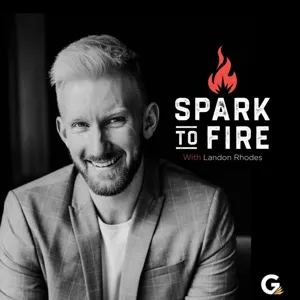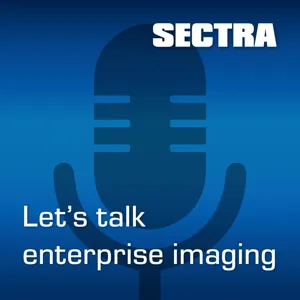Podcast Summary
Embracing AI: Transforming Software Development and Testing: AI tools like Copilot can benefit junior developers by allowing them to focus on understanding the system, environment, and product they are building. While AI can enhance efficiency, it won't replace human creativity and innovation in software development.
AI tools are transforming the way software developers work, and they need to adapt their thinking to leverage these tools effectively. It's no longer just about writing code; developers must embrace a bigger picture mindset that encompasses the connected experience and systems. Junior developers can benefit greatly from AI systems like Copilot, as they can spend more time understanding the system, environment, and product they are building. However, it's important to note that AI will not replace humans or their ability to innovate. The overhype lies in the idea that generative AI will completely replace humanity. On the other hand, AI-driven testing is an underhyped aspect of software development, which can greatly enhance efficiency and productivity. Companies should explore leveraging AI to generate comprehensive testing suites that encompass unit testing, integration testing, load testing, and more.
The Importance of System Thinking and AI Integration in Software Development: Embracing system thinking and integrating AI tools not only enhances productivity and code quality but also allows time for continuous learning and improvement for software developers.
The increasing reliance on software in all companies means that testing is now more critical than ever. While tools like Copilot can assist in code writing, software developers need to shift their thinking towards systems and architecture. This includes understanding the connected experience and systems they are building, which is especially beneficial for junior developers who can spend more time learning instead of solely focusing on coding. Additionally, the integration of AI into the development process will become more common, with developers needing to know how to use and integrate AI tools. The usage of Copilot has already shown significant benefits, such as developers writing code 55% faster and feeling more confident in code quality. These advancements in software development are rapidly changing the industry and making developers more productive and focused.
AI Tools: Enhancing Engineer Productivity and Capabilities: AI tools like Copilot can help developers reclaim time for coding, collaboration, and creativity, boosting productivity, preventing burnout, and promoting happiness. Companies should adopt AI strategically to solve specific problems and support their goals.
Companies should not see AI as a tool to replace or reduce the number of engineers they have. Instead, AI can enhance the productivity and capabilities of engineers, enabling them to be faster and better at their jobs. Developers often face numerous tasks besides coding, which can limit their time spent on actual coding. By leveraging AI tools like Copilot, developers can reclaim time for coding, taking breaks, collaborating, and fostering creative thinking. This not only boosts their productivity but also prevents burnout and promotes happiness. It is crucial for companies to approach AI adoption by identifying the specific problems they want to solve and then determining how AI can support those goals, rather than adopting AI for the sake of it.
GitHub's internal use of its own platform ensures effective usage and value for customers.: By testing and adopting their own tools, GitHub ensures usability and value for customers, while also prioritizing efficiency gains and productivity improvements for engineers.
GitHub's product teams, including the engineering team, operate by using GitHub itself. They "eat their own dog food" and are the first to try every new feature and capability being developed. This practice ensures that all personas involved in software development within GitHub are using the platform effectively, from finance and legal teams to HR. By testing and adopting their own tools, GitHub ensures that they are usable and valuable for their customers. This approach also aligns with the design philosophy of Copilot, which focuses on creating a seamless and intuitive experience for developers. The success metrics for Copilot are centered around measuring efficiency gains and productivity improvements for engineers.
Measuring the Success of AI Adoption in Software Development: Success in AI adoption in software development relies on a combination of metrics tailored to the organization's goals. Instead of solely focusing on time, considering efficiency, productivity, and developer happiness provides a comprehensive measure of success.
When it comes to measuring the success of AI adoption in software development, there is no one-size-fits-all metric. It's a combination of various metrics that are specific to the goals and objectives of each organization. Metrics like code quality improvement, code security enhancement, and time-to-value can be considered. However, measuring time alone is not sufficient as it doesn't guarantee good code quality. Instead, focusing on efficiency, productivity, and ultimately developer happiness can serve as a more comprehensive metric. Considering the concept of time to value, which measures how quickly the full potential or value of a task is realized, can provide valuable insights into the impact of AI tools on developer productivity and business outcomes.
AI tools like Copilot: Enhancing Collaboration and Communication in Development: AI tools like Copilot improve collaboration and communication among developers, bringing clarity to thoughts, reducing back and forth, and maintaining personal satisfaction in the coding process.
AI tools like Copilot can significantly improve collaboration and communication among developers. By using AI as a collaboration tool rather than a production tool, it enhances the clarity of thoughts and reduces the back and forth between team members. This is especially valuable in a global world where communication challenges exist between different personas involved in idea development. Copilot serves as a universal conversation language, similar to how math used to be, bringing everyone on the same page. Furthermore, while AI can write code and automate certain tasks, developers can still choose how they want to use the tools and focus on the aspects of coding that bring them joy. It's about finding the right balance between leveraging AI and maintaining personal satisfaction in the coding process.
From Niche to Generative AI: Exploring the Evolution of Artificial Intelligence: The future of AI lies in a hybrid approach, leveraging both generative AI and niche AI models, while fostering innovation through experimentation and embracing a fail-forward mentality.
The field of AI has evolved from niche AI, where only experts could harness its power, to a more democratized and generative AI landscape. The surprise for many, including Inbal Shani, was the boom of generative AI and the widespread adoption of AI by people who may not even understand what it is. However, Inbal believes that the future will involve a hybrid approach, where both generative AI and niche AI coexist. While generative AI can solve a wide range of problems, it is limited by its training data and may not be suitable for specialized areas like self-driving cars. Instead, a combination of specific AI models and multi-models may be required. To foster innovation and discover the next big opportunity, it is crucial to create space for experimentation and embrace a fail-forward mentality, learning from both successes and failures.
Driving Innovation through Customer Engagement and Collaboration: GitHub's success in innovation is attributed to actively engaging with customers, encouraging internal collaboration, and establishing a holistic approach that fosters close collaboration between research, product, and engineering teams.
GitHub's innovation is driven by a combination of customer feedback and internal collaboration. By actively engaging with customers and the open-source community, GitHub gathers valuable insights and ideas that shape their future developments. Additionally, GitHub encourages their teams to pitch ideas and allocate resources to explore innovative concepts. This flexible approach allows for organic and diverse contributions to the innovation process. GitHub Next, the research team, plays a vital role in envisioning the future of software development. However, what sets GitHub apart is their focus on making ideas tangible and ensuring close collaboration between research, product, and engineering teams. This holistic approach, along with the right people and mindset, contributes to GitHub's successful innovation efforts.
The importance of prioritizing implementation and fostering collaboration for team success.: Moving ideas from conceptualization to production requires prioritizing implementation and fostering collaboration between teams, while also embracing a broad skill set and learning from mentors and leaders.
The success of teams relies on their ability to move ideas from conceptualization to production. Often, teams get caught up in endless discussions and academic exercises, resulting in a lack of tangible outcomes. To avoid this, it is essential to prioritize the implementation of new ideas from day one. Waiting for an idea to go through the typical development process may hinder its chances of reaching production. Additionally, companies sometimes assign tactical tasks to teams, diverting their focus from innovation and future thinking. To strike a balance, it is crucial to foster a relationship between the product team and the future-oriented team, allowing for continuous idea exchange and collaboration. As a chief product officer, it is vital to have a broad skill set, encompassing business thinking, go-to-market strategy, sales, and engineering. Learning from mentors and observing leaders in different industries can help develop these skills. Additionally, understanding the importance of change management and influence is critical for successful product management. In summary, a combination of factors, such as experience, learning from others, and embracing a big-picture mindset, contributes to career growth and product success.
Leading with Clarity and Inclusivity: When driving change, it's important to build understanding by communicating the "why" behind the changes and finding a bridge to connect perspectives for successful implementation.
When leading a team and driving change, it's important to focus on building understanding and taking people on the journey with you. Inbal Shani learned this lesson early on in her role as a leader and manager of a team at TomTom. Initially, she approached change with her characteristic go-getter attitude, eager to fix everything and drive change. However, she realized that not everyone appreciates change or has the same mindset. Taking a step back, she learned to assess the situation, communicate the "why" behind the changes, and find a bridge to connect her perspective with the team's existing ways of working. This lesson of leading with clarity and inclusivity was crucial for successful change implementation.
The Power of Thoughtful Interview Questions: Asking about innovation and conflict resolution in interviews can provide insight into a candidate's problem-solving abilities and willingness to challenge authority, highlighting their potential.
Asking thoughtful interview questions can reveal a candidate's character and skills. Inbal Shani highlights two questions she likes to ask during interviews: the first about the most innovative thing the candidate has done, which reveals their perspective on innovation and their ability to think outside the box. The second question asks about a disagreement with a manager and how the candidate handled it, showcasing their communication and influence skills. By asking these questions, employers can gain insight into a candidate's problem-solving abilities, adaptability, and willingness to challenge authority when necessary. This emphasizes the importance of selecting interview questions that go beyond surface-level responses to truly understand a candidate's potential.






